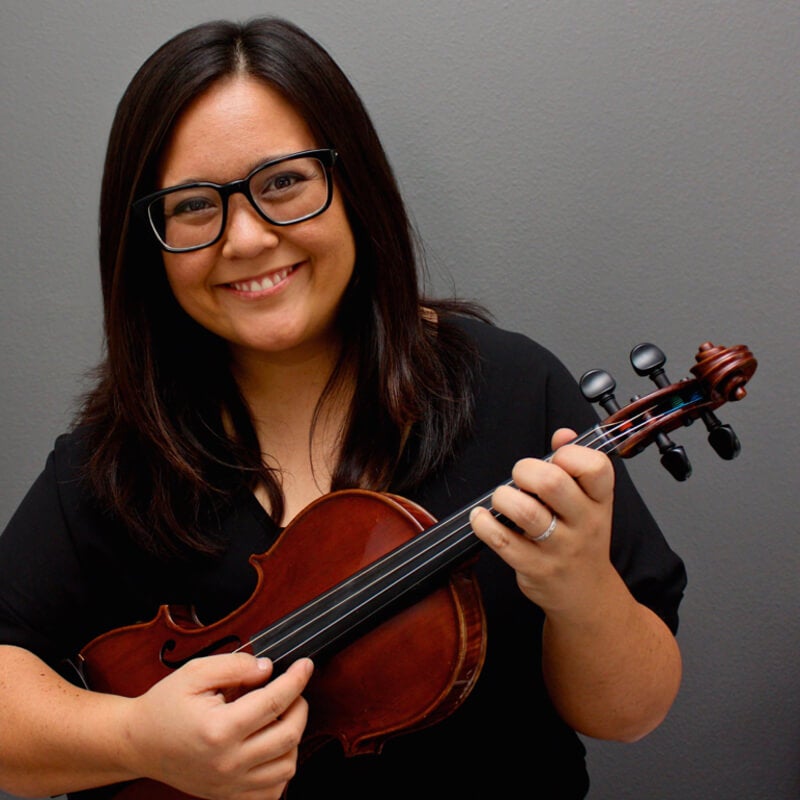Johanna Gamboa-Kroesen was driving back to her house when the call came.
“I was driving down one of those beautiful rural highways in New England, in the woods,” recalled Gamboa-Kroesen. It was 2006, and she was in the final stages of completing her M.M.Ed. at the Hartt School of Music in West Hartford, Connecticut. She was expecting the call, as she had a phone interview with a school district in southern California for her first job, just not that early. “The interviewers were running ahead of schedule,” she explained. “I had to pull off the road to take the call. I had my first interview right there, on the side of the highway.”
She got the job.
For Gamboa-Kroesen, it was the first step in a professional career as a music educator that took her from the public schools to doctoral studies to the Philippines on a Fulbright-Hayes fellowship. In Fall 2022, she will join The UCLA Herb Alpert School of Music as assistant professor of music education.
Her passion has always been teaching and sharing the joy of music. In all, she would spend sixteen years in Irvine schools teaching music to elementary and secondary school students. It was fulfilling work, something she deeply loved. For ten years, she honed her craft, winning two teaching awards along the way.
But she also noticed something strange along the way.
“I would have students who were doing really well in music class. They responded well to instruction, improved regularly, and were strong participants,” said Gamboa-Kroesen. “But they struggled in other areas. And when I talked to their teachers or coaches, it was like we were talking about two different students.” What was causing these seemingly troubled students to flourish in her class?
It was the beginning of a research question that she would take to her doctoral program at UCLA. She already had a decade of public-school teaching experience, and now she was ready to create a study that would measure the impact of music pedagogy on student success. She identified five schools as sites, developed surveys and observation instruments and presented them to her dissertation committee.
The committee was enthusiastic. They recommended that she begin with teacher data collection before interviewing students about their experiences. But Gamboa-Kroesen wanted to reverse the process, beginning with the students and then collecting teacher data.
“I was pretty insistent with my committee,” said Gamboa-Kroesen. “If we are going to be student-centered in our practices, then we should be student-centered in our research.” She did not have to press hard. “My committee was very understanding, and they accepted my rationale.”
Gamboa-Kroesen’s study yielded important findings. Student success, she found, correlates with a strong sense of community and belonging. Music ensembles were just such a place to build communities.
“Students can go to school and not hear their name all day long,” said Gamboa-Kroesen. “Music ensembles are where students can feel like they belong, where they get a sense of ‘these are my people.’” And it led not just to better grades, but to better emotional states. Students who participated in welcoming musical ensembles were more likely to participate in other classes, and less likely to engage in risk behaviors.
Gamboa-Kroesen probed the reasons why some teachers were able to build more successful ensembles than others. An exciting finding of her study was that music teachers were generally more effective when they de-emphasized competition in ensembles and instead focused on shared responsibilities.
For generations of music students who grew up on performance auditions and chair placement based on skill level, this is a counter-intuitive conclusion.
“When you think about it,” said Gamboa-Kroesen, “it makes sense. It’s actually harder to sit in the back and learn than it is to be in the front. And those students who might make careers as professional musicians can’t just spend their student years right under the conductor’s nose. They need to know what it feels like to be in the back, too.”
Gamboa-Kroesen’s work has important policy implications. If music education can unlock the door to better student outcomes, including the emotional well-being of students, then it is important that administrators and policymakers continue to prioritize it.
Music, it turns out, is essential after all.
